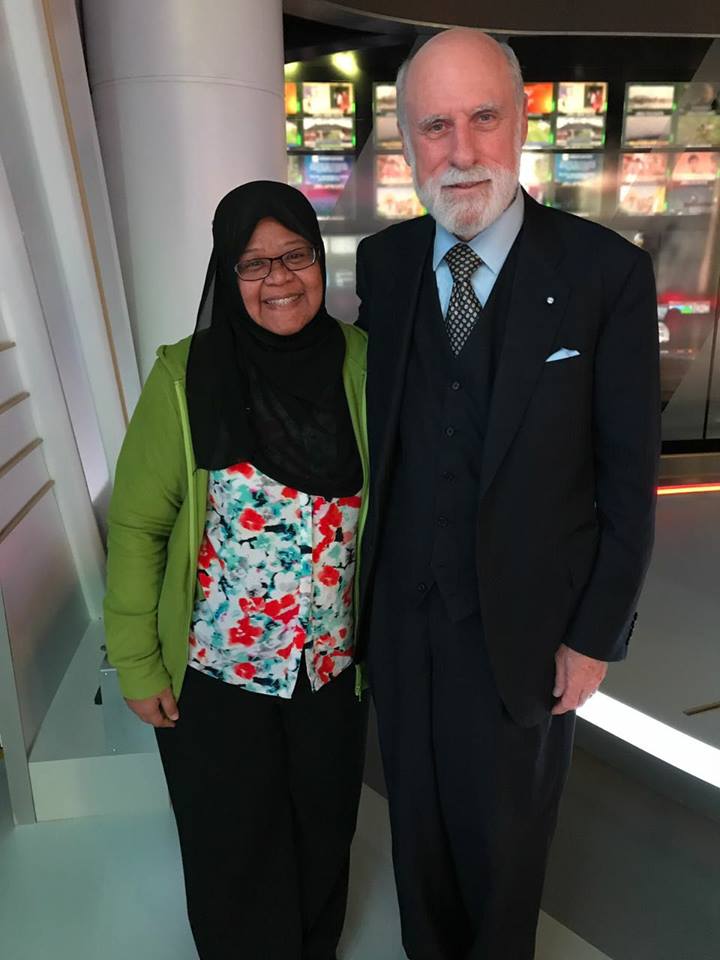We don’t need a lesson in history to appreciate the fact that the web as we know it today was the result of the collective effort of visionaries, who as early as the 1900s, foresaw a future where the exchange of ideas will become instantaneous.
That world is now, thanks to the work of these visionary engineers, scientists and thought leaders; long before Google became the de facto search engine, long before Mark Zuckerberg created Facebook, and long before you can make purchases on Instagram.
Another significant milestone came after scientists Robert Kahn and Vinton Cerf developed Transmission Control Protocol and Internet Protocol, or TCP/IP that essentially allowed the transmission of data across machines, systems and even geographic boundaries. Vinton Cerf, who I had the pleasure of meeting in my previous life as a broadcast journalist.

But enough preamble, technology has, and will always challenge the way we do things. Today, I look at how technology is challenging the traditional practices of teaching and learning, the traditional notion of expert opinion, and the traditional belief that libraries are the only source of credible information.
I listen with great interest as David White asks whether the ideas of philosopher John Locke would have had the same value and resonance had it been disseminated through a tweet and a blog post, instead of having been published in a tome. My gut instinct is, no it won’t.
For the simple reason that we live in a world where, rightfully or wrongfully, your measure of “credibility” is more often than not, measured by your social media presence. And that, quite frankly, scares me. We live in a world where being an influencer is more important that being a thought leader.

(Photo taken at the Palace of Independence in Ho Chi Minh City in Vietnam)
So I very boldly state that it is time our educators claim this space and disseminate their thoughts and ideas through social media. It is time our educators educate themselves and be digitally literate so they can take on the learners of tomorrow. So they can educate the thought leaders of tomorrow. I agree wholeheartedly with Doug Belshaw that gaining digital literacies is a “lifelong project that all of us need to be involved in”.
As we negotiate our roles on the continuum of visitors and residents in the online space, I think there is certainly a case to be made for educators and academics to seriously consider claiming that role of residents in the online space in their institutional capacity. It will take time, effort and energy, but I think it will well worth the effort.
In fact, in a world where a terrorist attack can be streamed ‘LIVE’, and a video of that same attack is viewed and shared more times than any critical analysis of the motivation of such terror attacks, I think it becomes more important that educators and academics claim that space.
The devil though, as they say will be in the details.
Just like I was part of the evolution from broadcast to webcast, and video-on-demand, I am excited to now be part of that evolution from physical to virtual classrooms. The tools are there, we just need to use them to our advantage.
References:
David White: Visitors and residents (part 1)
David White: Visitors and residents – Credibility (part 2)
Doug Belshaw: The essential elements of digital literacies
Developing digital literacies (2014) JISC guide.
Thanks for sharing both your fascinating thoughts as well as photo’s & journey – I have really enjoyed reading your blogs! You make a valid point that engagement with these mediums, can build influence for educators and that it holds great opportunities. I would add that, as educators we also have another important task and that is to highlight to our students the importance of critical engagement with sources they find online, so that they develop the skills to be able to distinguish between credible and non-credible sources. Another course participant has also raised this in her blog and there is a link to a course their university has developed if you want to take a look- https://onl191sarah.home.blog/
I look forward to more of your blogs!
LikeLike
Thank you for stopping by and for sharing your thoughts. Glad you enjoyed my blog.
LikeLike